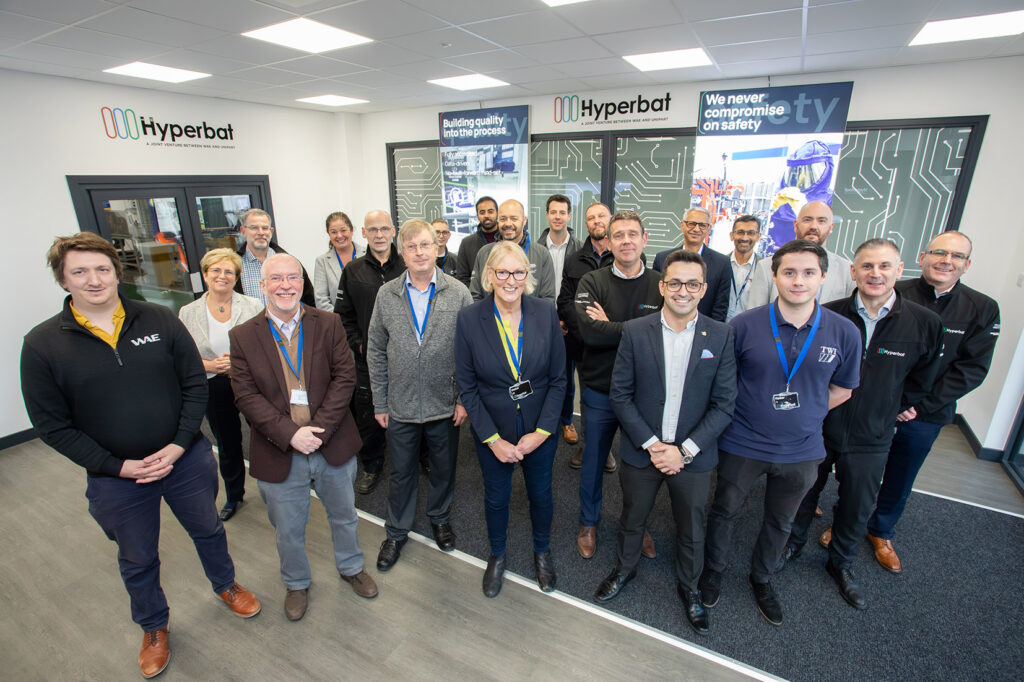The H1perChain project, designed to scale up the UK’s battery pack manufacturing and supply chain capability, has been hailed a great success.
Funded by the Advanced Propulsion Centre UK (APC), the £11.3m project has successfully developed an automated pilot line for module/pack assembly, cell joining and in-line testing – an important development for high performance battery costs and scalability.
Led by Hyperbat and working with main consortium partners Unipart Manufacturing, WAE, Coventry University and Direc-Tec, the project also offers a world class laser welding joining process for cylindrical cell formats, hundreds of skills development opportunities and the creation of a digital platform to connect the battery value chain.
Hyperbat, a joint venture between Unipart and WAE Technologies, continues to expand its presence at Unipart Manufacturing’s site in Coventry to meet the increasing demand for high-performance, high-voltage battery solutions.
Jon Bell, project lead at Hyperbat, said, “We came into H1perchain with the overriding aim of developing a process and emerging supply chain capability for manufacturing high-performance batteries in the UK.
“The brief was to find a way of reducing costs while increasing performance and meeting lead times, something we believe we are well on the way to achieving with the pilot line successfully assembling packs and a ‘digital twin’ in play to scale up production into the tens of thousands.”
More than 50 highly skilled jobs have been created at the production facility in Coventry, with the promise of another 25 as it enters into its first commercial agreement to supply battery packs for a global customer.
At the project conclusion event held at Hyperbat in Coventry, more than 50 guests from industry and academia were present, They received a guided tour of the physical pilot line that features incoming cell OCV testing, adhesive robot stations, laser welding, potting machines and robotic assembly, and entered the virtual world to experience a digital twin of what a high-volume production facility could look like.
Experts from H1perchain also presented the novel industry 4.0 digitalization platform that will underpin the development of a UK supply chain capable of producing more than £70m (US88m) of module and battery pack components and sub-systems every year.
Bell added, “The Supplier Portal is one of the most exciting parts of H1perchain and gives us an IOT platform that the wider supply chain can now use to engage with Hyperbat on future activities. By creating a ‘single source of truth’ of key manufacturing process data, bills of material and quality accreditation requirements, we are making it easy for companies – looking to supply components into battery packs – to get involved.”
He explained that the project had onboarded 36 UK suppliers to the system so far, but that the next target is to increase this to 200 by the end of 2024.
Sunil Maher, senior project lead at Advanced Propulsion Centre, added his support: “The H1perchain project has achieved significant and positive outcomes for the UK, with the consortium partners establishing battery module and pack manufacturing capability that is scalable for current and future demand.”


